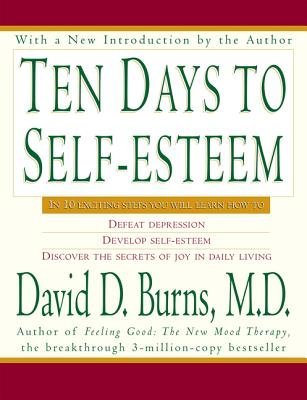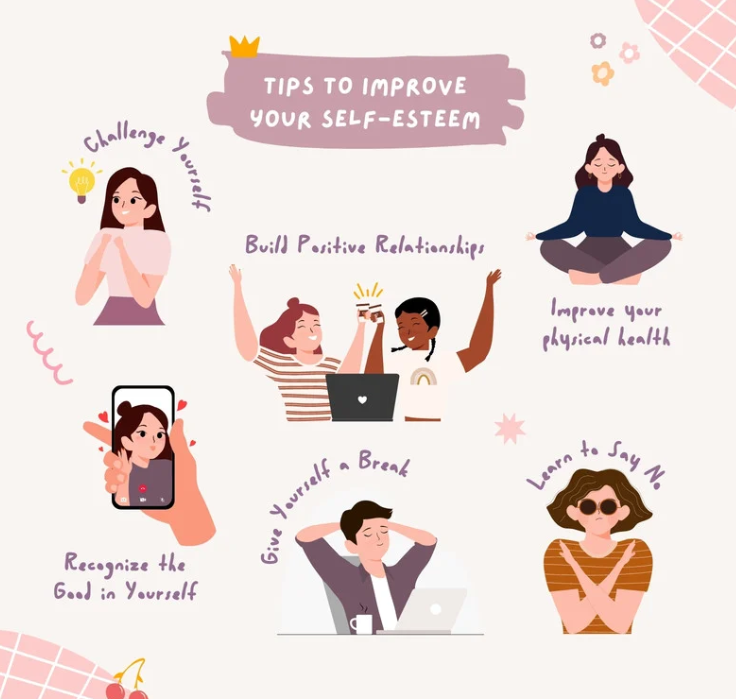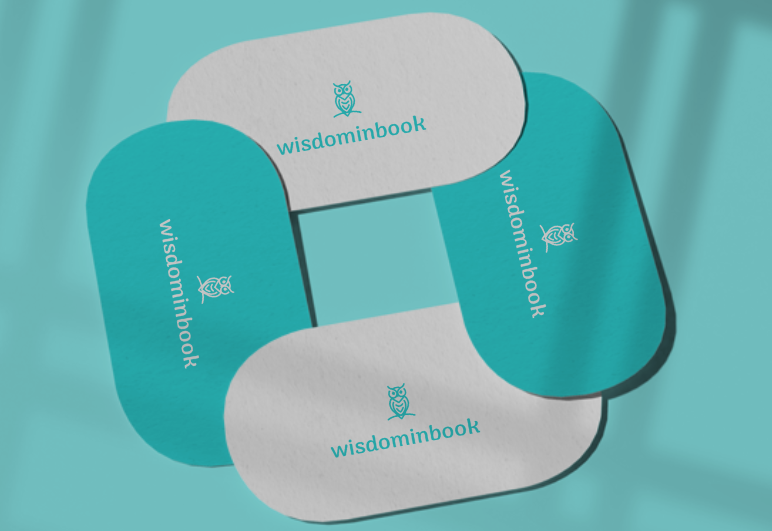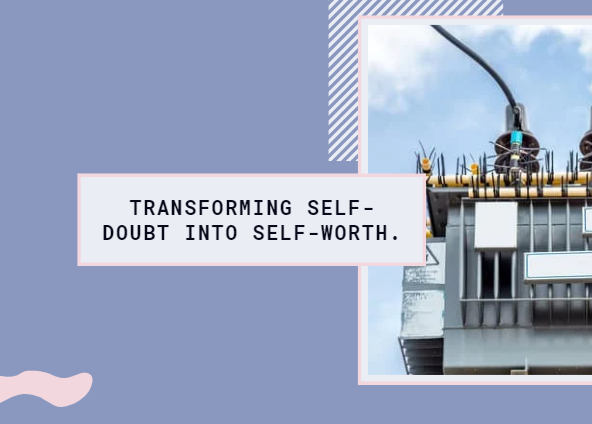Get Ready to give “Ten days to Self-esteem”
“Ten Days to Self-esteem” serves as the cornerstone for our success, relationships, and mental well-being. It has everything to do with how we view our own value, our own worth, and our own place in the world.
Dr. David D. Burns offers an inspiring manual in his book “Ten Days to Self-Esteem” that explains the causes of our low self-esteem and offers practical solutions. As with muscles, self-esteem is something we can build and increase over time, according to Dr. Burns. It is not something we are born with.
One of the most important lessons from “Ten Days to Self-Esteem” is that our emotions are a product of our thinking. Positive ideas can raise self-esteem while negative ones may lower it. Psychological imperfections, as defined by Dr. Burns, are illogical, exaggerated thoughts that have the potential to change our sense of reality. Exaggeration, leaping to judgments, and all-or-nothing thinking are examples of common mental biases. We can begin to see ourselves and our life more clearly and optimistically by recognizing and challenging these distortions.

Let me to briefly describe my personal experience that may help you to relate why I am so attached to this book on self-esteem. I was afraid, feeling uncomfortable and their was a self-doubt at one point in my life owing to multiple situation with no attractive results I was aspiring for. I used to always feel that I wasn’t talented, intelligent, or good enough. My happiness as a whole, my relationships, and my work were all impacted by this mindset.
I came to the realization one day that I had to change. One of the thing I always like was books, and when I started reading “Ten Days to Self-Esteem” this was kind of what I felt can help me to change my mindset. The more I read, the more I realized how my self-defeating thought habits were preventing me from moving forward. I carefully worked through the exercises in the book. I developed the ability to identify my cognitive distortions and replaced them out for more realistic and optimistic thoughts.
For example, instead of thinking “I always mess up,” I would tell myself, “I’ve made mistakes, but I’m learning and improving every day.”
I not only used Dr. Burns’ approaches but also implemented some feasible steps to improve my self-esteem. I made myself humble, thought about my attainable goals and acknowledged every little victory, no matter how small. I surrounded myself with positive people who inspired me to follow my goals and had faith in me. I also made a point of looking after my physical health because I discovered that these factors had a big impact on my mood and sense of value—exercise, a healthy diet, and enough sleep.
I gradually started to notice a change in myself. I felt more competent, satisfied, and self-assured. I came to understand that having high self-esteem doesn’t mean being flawless; rather, it means appreciating our value and treating ourselves with respect and love.
To those of you here today who might be struggling with self-esteem, I want you to know that change is possible. It won’t happen overnight, but with patience, practice, and persistence, you can build a healthier, more positive self-image. Remember that you are valuable, you are worthy, and you have the power to shape your own narrative
10 days, 10 learnings from “Ten days to Self-esteem”
Today I want to leave with some key pointers from “Ten Days to Self-Esteem” that you are gonna use throughout your life:

- Our Thoughts Create Our Feelings: Dr. Burns emphasizes that the way we think about events, rather than the events themselves, determines how we feel. By changing our negative thought patterns, we can alter our emotional responses and improve our self-esteem.
- Identifying Cognitive Distortions: Cognitive distortions are irrational and exaggerated thought patterns that can lead to low self-esteem. Common distortions include all-or-nothing thinking, overgeneralization, mental filtering, and catastrophizing. Recognizing these distortions is the first step toward changing them.
- Challenging Negative Thoughts: Once we identify cognitive distortions, we can challenge and reframe them. This involves questioning the validity of our negative thoughts and replacing them with more balanced and realistic ones. For example, instead of thinking “I always fail,” we can think “I have succeeded in many areas and can learn from my mistakes.”
- The Importance of Self-Monitoring: Keeping track of our thoughts and feelings through journaling or thought records helps us become more aware of our cognitive patterns. This self-monitoring is crucial for identifying negative thoughts and cognitive distortions as they occur.
- Building Self-Esteem Through Small Steps: Dr. Burns suggests setting small, achievable goals and celebrating each success. This helps build a sense of accomplishment and reinforces positive thinking. Over time, these small victories can lead to significant improvements in self-esteem.
- Behavioral Activation: Engaging in activities that bring joy and a sense of achievement can improve mood and self-esteem. Behavioral activation involves scheduling and participating in positive activities, even when we don’t feel like it, to break the cycle of inactivity and negative thinking.
- The Role of Assertiveness: Learning to assertively communicate our needs, desires, and boundaries can boost self-esteem. Assertiveness involves expressing ourselves honestly and respectfully, without aggression or passivity, which helps us feel more in control and valued.
- Developing a Positive Self-Image: Creating and nurturing a positive self-image involves focusing on our strengths and achievements rather than our perceived flaws and failures. Dr. Burns encourages us to make a list of our positive qualities and accomplishments to remind ourselves of our worth.
- Practicing Self-Compassion: Self-compassion involves treating ourselves with kindness and understanding, especially during times of failure or difficulty. Dr. Burns emphasizes that being gentle with ourselves, rather than critical, can foster a healthier self-esteem.
- Building Healthy Relationships: Surrounding ourselves with supportive, positive people can have a significant impact on our self-esteem. Dr. Burns highlights the importance of building and maintaining relationships that uplift and encourage us, rather than those that bring us down.
These takeaways from “Ten Days to Self-Esteem” provide a comprehensive approach to improving self-esteem by addressing both our cognitive and behavioral patterns. By applying these principles, we can work towards a more positive self-image and a healthier, more fulfilling life.
From Self-Doubt to Self-Worth: Conclusion
As we come to the end of, I hope this blog would help you to embark on your own journey toward healthier self-esteem. Remember, self-esteem is not something we are born with; it’s something we can cultivate and nurture every day. The steps and strategies we’ve discussed today, inspired by Dr. David D. Burns’ “Ten Days to Self-Esteem,” provide a roadmap to help you challenge negative thoughts, build positive habits, and develop a stronger, more resilient sense of self-worth.
In closing, I encourage each of you to take the first step today. Start by identifying and challenging those cognitive distortions, celebrate your small victories, and be kind to yourself in the process. Your journey to greater self-esteem is a continuous one, filled with growth and discovery. Believe in your worth, embrace your strengths, and never underestimate the incredible potential within you
I encourage you to read “Ten Days to Self-Esteem” and apply its lessons to your life. Surround yourself with positivity, set achievable goals, and be gentle with yourself during this journey. Your self-esteem is a crucial part of who you are, and investing in it is one of the best things you can do for your overall well-being.
Buy Now “Ten days to self-esteem”If you enjoyed this reflection from “Ten Days to Self-Esteem” and want to explore more about living a fulfilling and enriched life, I invite you to follow my blog.
Read book summary on self discovery and Personal development
You can read more blog on this site >>>>>
About the Author of “Ten Days to Self-Esteem”
David Burns a psychiatrist specialized in “Cognitive Behavior therapy”. He defines the cognitive as a simple idea : the interpretation of what is happening at every moment. David is based on the idea that when we change the way we think, we can change the way we feel. His therapy takes place in 3 steps : write on paper all the negative thoughts, then identify distortions and finally come up with a positive thought. For him, the “secret” is finding the truth in what the person is saying and acknowledging their emotions


Connect with me on Instagram at Jm_justbeyou